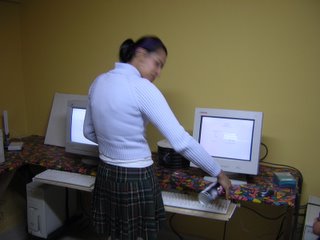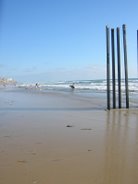"I ask who's going to take the weight/And y'all shrug like Wednesdays are bad for me, I gotta study"
- "G'Dang Digg" by RA Scion of Common Market
I am a student of medicine. I am enrolled in classes at a school of medicine. To whom is it a responsibility that I learn the material I am "taught"? To my school, to my future patients, to myself? All of the above?
The first semester in medical school has rapidly passed by, yet I can already feel my soul being systematically removed from my body with the same amateur precision with which I removed the heart from the cadaver. Step one, "appreciate" the heart's location within the body. Step two, feel the spaces around the heart. Step three, cut the connections to the body and remove. A human heart is in my hands and I slowly learn to name all of the parts of the object that I'm holding. But I that doesn't mean I understand it as a whole. I don't grasp how it pumped blood through this person's body during 92 years of life. I don't understand the context of the pieces...mainly what was THIS heart in the context of this person. It's a question more philosophical than physiological. Yet it is of paramount importance in my training. And it never came up in class. Am I being short-changed in my education? $200,000 in tuition (+interest) for a partial education?
And so, I quietly steal away from studying Anatomy & Histology to form my own education. A short bus ride to a 2-hour community meeting in Mattapan: $1.25 (inversely proportional to the value of the lessons I've learned). Who are these BMC patients anyways? How and where do they spend the other 99% of their time when they aren't at the doctor's? Here is the other part of my education. I can see 30 hearts beating around the room. Pumping blood through vessels to deliver oxygen and nutrients to bodies that each have a purpose. Their kids. Their spouse. Their neighbors. Their community. Our community.
Our medical school is not geared towards these educational experiences, and so medical students fight a strong current to fulfill their responsibility to learn "medicine" (the art of healing). Too often it is a losing struggle. UNIDOS (http://www.unidosboston.org) offers a chance to reclaim ownership of our education. Circumventing the bureaucracy inherent in institutional medical eduction, our collaborative can facilitate experiences in "the other 99%" of our patients's lives. Through UNIDOS we can get to know the heart in a way that we never could in Anatomy lab...while it's still beating.



